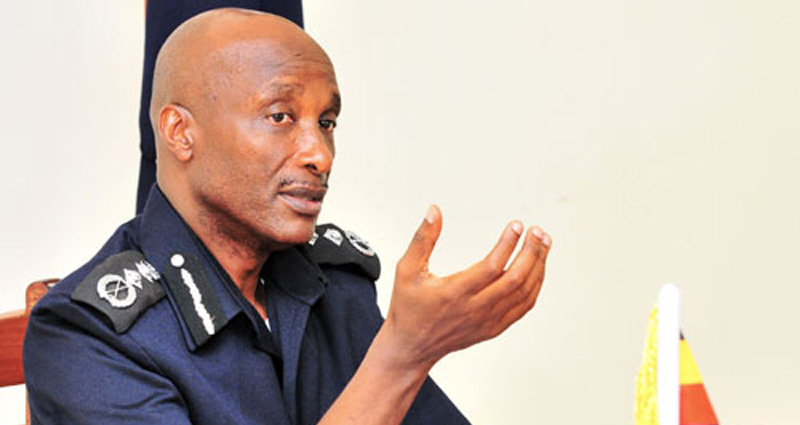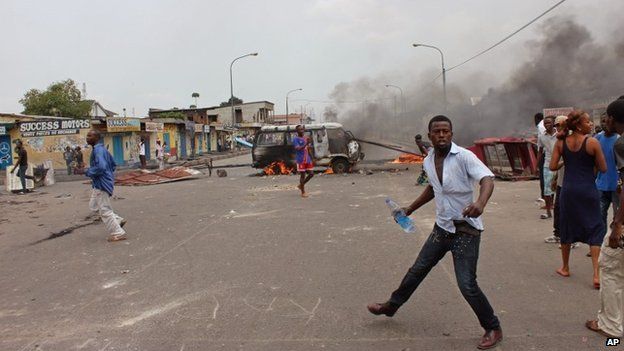MAJOR GENERAL KAYIHURA SHOULD BE ARRESTED. When I first read Major General Kayihura’s limp response to the recent Constitutional Court judgment on the Police Act, I was reminded of the 1967 Constitution which effectively gave rights with one hand, and took them away with the other. Kayihura’s statement is—for all intents and purposes—an attempt to re-write the 1995 Constitution. It returns us to the days when exceptions to rights were more effective than the right which had been given. A few reminders to the learned Major General. First of all, under Article 20 of the 1995 Constitution rights are inherent.
Secondly, if those rights are to be restricted in any way, the test is a very high one.
In quoting Article 43 as his justification for restricting the rights to assembly, the Major General forgot to quote clause 2(c) of the provision, which states that “public interest” shall not permit “…any limitation of the enjoyment of the rights and freedoms prescribed in this Chapter beyond what is acceptable and demonstrably justifiable in a free and democratic society…” Neither the Major General’s statement nor his recent actions regarding the Democratic Party (DP) rally, and the brazen arrest of several MPs involved in peaceful and lawful actions are “demonstrably justifiable.” Furthermore, the learned Major General should be reminded of Article 128(3), which states that “All organs and agencies of the State shall accord to the courts such assistance as may be required to ensure the effectiveness of the courts.” By failing to respect the court ruling, Major General Kayihura is in reality minimizing the effectiveness of our courts.
More importantly, with these recent actions Major General Kayihura has entered the arena of contempt of court. Being a lawyer, Kayihura should be well aware that a finding of contempt may result from a number of circumstances. The first would be a failure to obey a lawful order of Court. The Constitutional Court has very clearly stated that the Police (in particular, the IGP) does not have the power to prevent the convening of an assembly or procession. Quite obviously, this means that the Police cannot stop an assembly before it has taken place, whatever their beliefs about its likelihood to cause a disruption. The best the Police can do is to intervene in the event an assembly or procession which is in progress turns rowdy. Major General Kayihura is thus in contempt for insisting on preventing assemblies from taking place. Secondly, one can be held in contempt for showing disrespect to a judge or a panel of judges. Major General Kayihura has compounded the contempt by refusing to comply with the order of the Constitutional Court.
I would also like to remind my learned colleague of the sanctions that flow if a person is found guilty of contempt of court. Depending on the gravity of the disrespect that has been shown, a judge can either order a fine to be paid, or for the offending person (known as a “contemnor”) to be jailed.
Major General Kayihura should be reminded that there are four elements necessary in the proof of contempt. The first is that there is the existence of a lawful order, which can be found in the judgment of the court. The second is the contemnor’s knowledge of the order, which knowledge was clearly demonstrated in Major General Kayihura’s June 2nd statement on the court ruling. The third ingredient is the contemnor’s ability to comply with the order. In this case, Major General Kayihura has not been asked to do anything; in fact, he has been asked to exercise maximum restraint, which he has failed to do. The last element in a finding of contempt is the contemnor’s failure to comply with the order. Major General Kayihura’s insistence not simply in disobeying the lawful order of the Court, but going further by breaking up meetings convened by MPs consulting their constituents and involving para-military elements in doing so, is the height of contempt. In the circumstances of this particular case, a fine would be too light a sentence for the contempt that the learned Major General has so blatantly shown. The only alternative is for the Courts to order his arrest for contempt!
J. Oloka-Onyango
Director, HURIPEC
Makerere University










